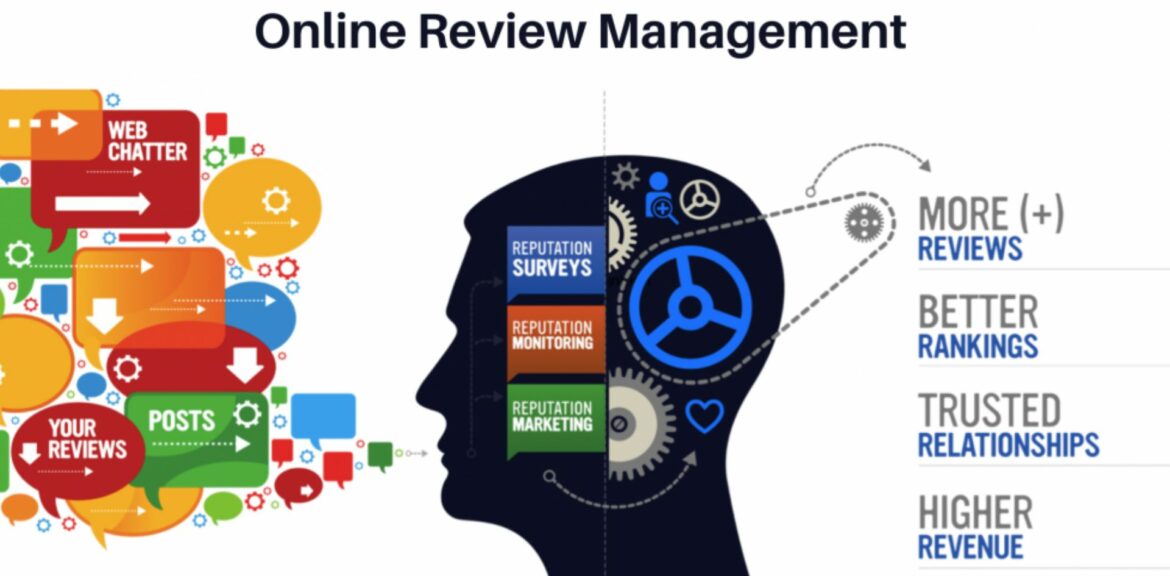Online reviews are more than just comments; they are valuable assets that may significantly impact your company’s reputation, client trust, and financial performance. An effective online review management is critical in today’s digital world, especially when potential consumers rely significantly on reviews to inform their purchase decisions.
This article will look at three key strategies to help you manage online reviews effectively.
Understanding More About Online Review Management
Online review management includes analyzing, reacting to, and creating consumer reviews across various review sites. This method is often designed to strengthen a company's marketing efforts and improve overall business success.
According to research, 72% of buyers will wait until they have read reviews before selecting. Furthermore, data on online reputation management show that 94% of individuals have avoided a firm because of a poor review.
Whether you own a small business or manage an already established business with several locations, it is clear that online reviews substantially impact your company's reputation and income.
3 Essential Strategies for Online Review Management Success
Online reviews are vital to company success. To succeed, organizations must actively monitor reviews, proactively respond to comments, and use insights to improve. Effective review management tactics help you improve your reputation, recruit consumers, and expand. Master these tactics for long-term success.
1. Proactively Encourage Customer Reviews
Positive reviews function as strong testimonials for your company, increasing trustworthiness, enhancing SEO ranks, and attracting new clients. To fully realize these benefits, it is critical to encourage delighted consumers to share their experiences aggressively.
How to Encourage Reviews
Ask at the Right Time: Timing is important. Request a review after a favorable experience, such as a successful purchase or service encounter.
Incentivize: Customers who post reviews should receive little perks, such as discounts or loyalty points.
Simplify the Review Process
Ease of Use: Make it as easy as possible for consumers to submit reviews. Provide access to review sites and ensure the review submission procedure is simple.
Mobile Optimization: Make sure the review procedure is mobile-friendly since many customers will write reviews on their smartphones. According to Google's study, mobile-friendly websites and procedures improve consumer happiness and engagement.

2. Respond to All Reviews
Responding to positive and negative reviews shows that you respect consumer input and want to improve your business. This way of relationship bulding promotes trust and increases client loyalty.
Best Practices for Responding to Reviews
- Be Prompt: Aim to reply to reviews within 24-48 hours.
- Be Grateful: Always express appreciation for the positive or negative feedback.
- Be Professional: Address unfavorable reviews calmly and helpfully, giving suggestions or inviting the reviewer to a private discussion.
- Highlight Positives: In reaction to excellent reviews, stress the positives noted and convey a desire to service the consumer again.
Address Negative Reviews Constructively
Acknowledge and Resolve: When replying to a bad review, recognize the customer's issues and propose a solution or remedial action.
Avoid Defensiveness: Respond professionally and avoid becoming defensive. Addressing complaints with a constructive approach may transform unpleasant experiences into good ones and demonstrate to future clients that you manage problems appropriately.

3. Monitor and Analyze Reviews
Regularly tracking reviews is essential for preserving a favorable online reputation. It helps you to identify patterns, assess consumer sentiment, and make educated business decisions.
Tools and Techniques for Monitoring
Use Review Management Software: Invest in systems combining reviews from many platforms and providing analytical insights.
Set Up Alerts: Set up notifications for new reviews to enable prompt responses.
Analyze Feedback: Continuously examine and analyze feedback to identify recurrent themes and use this knowledge to improve goods, services, and the overall customer experience.
Looking to improve your online review management? Experience the difference with Reviewr.
Implement Improvements Based on Feedback
Actionable Insights: Use review comments to enhance products, services, and customer service.
Communicate Changes: Inform consumers about any modifications or improvements made based on their comments. This may be accomplished by responding to reviews or posting updates on social media and your website. Transparency in handling feedback can help increase trust and demonstrate your commitment to continual development.

Conclusion
Mastering online review management entails more than just collecting comments; it also entails actively communicating with clients and leveraging their insights to help your business grow. You will develop an excellent online reputation by proactively requesting reviews, reacting to comments, and continuously monitoring and evaluating reviews.
Adopting these basic strategies is an important first step for business owners looking to enhance their online review management approach. Begin today with Reviewr and see your business thrive in the digital sphere.










